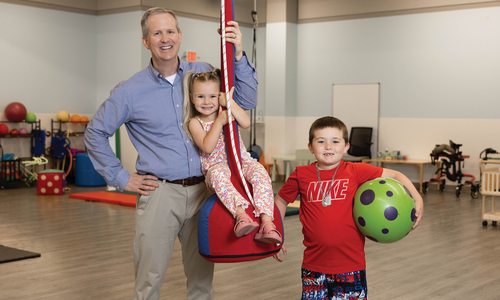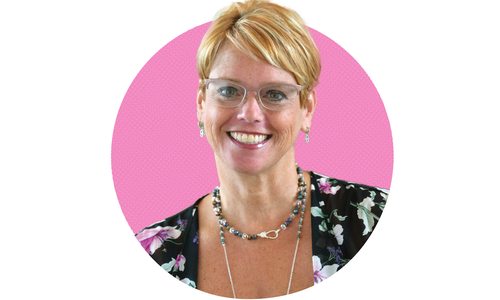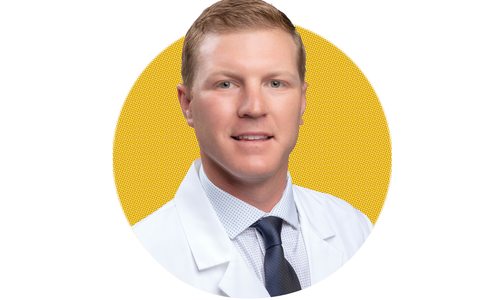Faces of 417-Land
Generation Next
We step beyond the welcome mat to meet the next generation of 417-landers who are stepping up to run the family business.
By Ettie Berneking | Photos by Kevin O’Riley
Jul 2014

Driving through 417-land, you’ll find an endless supply of generations-old family-run businesses from car dealerships to candy emporiums. Some of these families are in their third and fourth generations with grandkids and great-grandkids carrying on the traditions of those who came before them. Their stories are of success and drive but also of intense respect for the tried-and-true ways set down decades ago. Some of these heirs to the family throne got their first paycheck in the seventh grade. Others were busy sweeping floors as soon as they could walk. We step beyond the welcome mat to meet the next generation of 417-landers who are stepping up to run the family business. While all of these business-savvy individuals are in place to eventually take the torch from their parents, they are each doing something new to take the family name and industry to the next level.

Ryan and Ross Murray
R.B. Murray | Springfield
For Ryan and Ross Murray, vice presidents of R.B. Murray, a commercial and industrial real estate company, so much about their future plans for the company revolve around family. The Murray brothers will be the third generation to take the helm of R.B. Murray Company, but their family has roots in the real estate business dating back more than four generations. That’s an impressive feat in any industry. Reminders of this accomplishment can be found around their office. In one room, there’s a massive sepia-toned photograph of their grandfather Robert B. Murray standing in front of the Holland Building in downtown Springfield. Built in 1913 by their great-grandfather Clifford Jerrett, the Holland building served as the company’s office until the early ’80s. With these small reminders that go back nearly four generations, it’s easy to understand why this business means so much to the Murray clan.
R.B. Murray was founded in 1901 as a securities, insurance and real estate company, which was later renamed after Ryan and Ross’s grandfather, Robert Booth Murray Sr. Growing up, Ryan and Ross, who are three years apart in age, were constantly exposed to the real estate business, whether they were listening to conversations around the dinner table or shadowing their dad and uncle at the office. Eventually, Ross, the older of the two, started helping out more around the office. “My first job here as an intern during college was to put up signs,” he says. “I always knew I wanted to be part of the family real estate legacy.” After college, Ross joined the business as a full-time broker. Ryan gained experience working with an international development company in Denver while he attended and then graduated from the University of Colorado, and by the time he returned to Springfield, Ross was already on his way to becoming a young titan in the brokerage business.
Following the leadership of their dad and uncle (who both still work at the company), Ross and Ryan have continued their education and have earned several of the industry’s top certifications and professional accreditations that have helped them thrive in the world of real estate brokerage.
While Ross joined the real estate world at the peak of the market, Ryan hopped aboard in 2008, when the market had hit rock bottom. “I joined when our industry was at its toughest point,” he says. “I set out to create a product that was viable in the downturn and that could help the company adapt to the times.” To do that, Ryan worked over a three-year period to expand the scope of the property management division of R.B. Murray. Simply put, R.B. Murray helps clients lease, sell and manage commercial properties, whether that’s an office development or a piece of vacant land. Ryan built an extension of this, so R.B. Murray now manages those properties. They make sure the lawn is cut, the leases are filled and the rent is collected. “Some of our clients are the largest real estate holders in the world,” says Ryan. “Since they might not have anyone in the state, we’re the boots on the ground.”
As the two brothers go back and forth talking about the paths they took before joining the family business, they can’t help but compliment each other. “It’s really a mutual admiration society,” Ryan says. Their paths to vice president have been the result of hard work and planning.
If you’re curious about what they have planned for the future of R.B. Murray, just look at the sustainable office building they built and moved into in 2008. With expansive windows, temperature-controlled zones and an endless list of sustainable elements, this office is as representative of the company’s future as Ryan and Ross. “This is our generation,” says Ross. “This is what the future will be.”

Neil Brady
Anderson Engineering
Springfield, Joplin, Monett and Carthage
As president of Anderson Engineering, Neil Brady doesn’t do as much engineering as he used to. Now he’s busy managing the financial side of the business and working with his dad, Steve, who is the company’s CEO, to make sure the business is always on the lookout for new acquisitions and growth. It’s actually a pretty far departure from his work as a civil engineer. “My dad and I are engineers by trade,” he says. “We didn’t know anything about business, but I’ve watched how he’s led the company.”
Anderson Engineering, which is now celebrating its 60th year in business, was first founded in 1954 in Branson as a concrete company. It eventually dropped the concrete bit and moved solely into engineering, covering nearly every niche field available from civil and geo-technical engineering to materials testing and drilling. “That’s part of our niche,” says Neil. “We can take a company from the beginning of a project all the way through construction.” One of the company’s oldest and largest clients is O’Reilly Auto Parts.
Taking his father’s lead, Neil has continued to seek out potential new markets and clients. While Anderson originally started in Branson, it’s now headquartered in Springfield and has additional locations in Joplin, Carthage and Monett and more than 70 employees. The latest acquisition of the Carthage and Monett locations is in large part thanks to Neil, as he presented purchasing the firms (formerly owned by another engineering company) to Anderson’s board. He’s also served for the past year as president of the Missouri Society of Professional Engineers, a state-wide non-profit agency that promotes the protection of the public’s health, safety and welfare by defending the engineering profession.
But unlike most family businesses where the path to succession can be set in place years in advance, Anderson Engineering is 100-percent employee owned. That means Neil has to get approved by the company’s board of directors before he can follow his dad’s footsteps and become CEO. In fact, Neil has to be re-elected to his position as president each year.
What’s even more intriguing is that the push to become employee owned was, in part, spearheaded by Neil’s dad, Steve Brady, who was part owner at the time.
Neil’s dad joined the company in the early ’70s and worked his way up to part owner. Neil joined the company in 1996 after growing up tagging along behind his dad at job sites and working in every department available during high school and summers during college. “I worked in field work, materials testing, drilling and surveying,” he says. “That helps me lead the company now since I know what’s going on out in the field.”

Born to Laugh
Of course we can’t forget to mention some of the most entertaining family businesses, the Baldknobbers Jamboree and The Presleys’ Country Jubilee. Since the late 1950s, these two families have had us slapping our knees as their kids, grandkids and even great-grandkids continue the comedy and musical routines that have become a staple on the Branson stage.
A Family Affair
If you think working for Mom and Dad is tricky, try working with your cousins, sisters, brothers and aunts. These family-operated businesses are all-hands-on-deck.

Still Waters Resort
Family ties are especially close in the Battaglia family since Tony and Sue Battaglia founded the resort in 1977. After leaving behind his neighborhood grocery store of 24 years and transporting his family from Ohio to Branson, Tony transformed what was then just a small fishing cabin into one of the area’s top resorts. Sticking to their Italian roots, this family is deeply passionate about the business and about the family legacy, so it’s no wonder all 10 family members (including Tony’s three sons, his daughter, two daughters-in-law and three grandsons) who work at the resort are eager to talk about Still Waters’ impressive history. As for who is next in line to take over the business, there’s no solid answer. Instead, as Tony explains, everyone in the family pitches in, and that works just fine. “If it’s not broken, don’t fix it,” he says.
Southern Supply Inc.
When it started back in 1934, Southern Supply Inc. stayed busy building doors. Over the years as new family members have joined the team, the business kept expanding, and those members have branched off and started Southern Materials, SMC Electric, Boyd Aluminum and Distinctive Home Products. Four generations into the business, there are now 14 family members who meet once a month to talk shop and plans of expanding.
Harter House
Originally hailing from St. Louis, Jerry and Barbara Bettlach moved to Springfield and brought with them the meat cutter who helped them carve out their niche in the local grocery market scene. Since buying the Harter House Meat Market in 1973 and transforming it into a full-service grocery store, Jerry and Barbara have seen more than 30 family members join the Harter House payroll. Two of their kids are store owners, one of their daughters is the bookkeeper and another son their insurance agent.

Michael Ingram Jr.
Ingram Enterprises Springfield
After growing up around fireworks and spending nights camped out on the office couch while his parents worked around the clock each Fourth of July, it’s not too surprising to see Michael Ingram Jr. follow in his dad’s footsteps at Fireworks Over America and Fireworks Supermarket.
Mike Senior started his first fireworks stand when he was 15 years old. He bought $500 worth of fireworks without telling anyone, and when a semi truck filled with fireworks pulled up to his mom’s motel near Lake Taneycomo, young Mike Ingram’s career was born.
Each summer, he returned to the small ramshackle stand along Shepherd of the Hills Expressway until he actually bought out his wholesaler and went into the wholesale business for himself.
Today, Ingram Enterprises is the parent company of Fireworks Supermarkets, Fireworks Over America, Fireworks World and several investment companies. That tiny wooden stand in Branson is long gone. In its place are 20 retail locations across the country, plus four massive wholesale centers.
Now Michael Ingram Jr. is the company’s director of development out of the headquarters in Springfield. “As a little kid, I used to follow my dad around the office,” he says. “I had my own little briefcase and helped sell fireworks in the retail center.” Michael Jr. worked his way up through the company from loading trucks in the warehouse to managing his own retail operation to where he is now. One of his biggest contributions has been helping bring the company into 2014, whether that’s with a ramped-up social media presence or the creation of a software system that allows customers to design and print posters and banners for their fireworks stands. Another huge accomplishment Michael Jr. can tout is landing Walmart as a client. “We’re in about 5,000 Walmart stores across the country,” he says. That means Fireworks Supermarkets’ in-house brands, including the Time Bandit line, have an even further reach. “I’m not trying to reinvent the wheel,” he says. “My job is to take the company forward.”

Mandy Morris
Family Pharmacy
Ozark
To get to the Family Pharmacy corporate office, you pull off the main drag in Ozark and take a short drive past a few sprawling farm fields dotted with doe-eyed cows until you reach the office gates. You don’t often expect a successful business with 24 locations to settle in where the only neighbors are dozens of heifers, but this is exactly the type of neighborhood Family Pharmacy is looking for.
Started in 1977 by pharmacist Lynn Morris, Family Pharmacy began with just one store in Ozark. Since then, that number has grown to 24 with stores in Joplin, Branson and 16 other towns in Missouri. “This was all part of my dad’s vision,” says Mandy Morris, vice president of Family Pharmacy. “He wanted to put the pharmacies in smaller communities.” In the small 417-land town of Sparta, for instance, Family Pharmacy is the only pharmacy around. Going small has paid off big for Lynn Morris and his family.
After growing up following her dad on his rounds at the pharmacy, Mandy moved up in rank and went from cashing customers out after school to becoming a pharmacy tech and assistant store manager to eventually taking the reins alongside her stepmom, Janet Morris, in the corporate office. As VP, Mandy has stepped up and now runs the business while her dad wraps up his second term as a state representative in Jeff City.
But that doesn’t mean Lynn has hung up his white coat. You can still find him working as the pharmacist at the Ozark location when he’s in town, and his weekly hand-written faxes to the corporate office have come to be expected. “These include several pages of things he’s thought of to try out at the pharmacies or things to look up at the library-. We can just Google those,” Mandy says laughing. After shadowing her dad for so many years, Mandy has things under control, so she has to laugh when she gets a call from her dad who has a suggestion about something Mandy and her team have already started working on.
But of course, as pages of notes and daily phone calls are just part of working with your family, so is working alongside a list of aunts, uncles and cousins. The list of family members working at Family Pharmacy totals 11, including Mandy’s brother and sister who work alongside her. Mandy’s ex-husband even works for the business. “Dad still calls him son-in-law,” she says with a smile. “I think that’s what you get in a family business.”
As for future plans, Mandy knows that one day she’ll be in charge of her father’s empire, but for now, she’s still happy to be getting those weekly faxes.

Drew and Nikki Holden
Custom Metalcraft | Springfield
The front office of Custom Metalcraft in Springfield is covered with patents that span across the decades. Most are for variations of tanks and transport devices, but each gives a snapshot of the company’s 37-year history. When the business started in 1977 under the leadership of Dwayne Holden and Jerry Cowen, operations were crammed into the industrial warehouse, and the office was tucked inside a construction trailer outside. “It wasn’t very glamorous,” says Nikki Holden. Thirty years later, and the building looks almost unchanged. The office has moved inside the warehouse, but that slightly worn industrial atmosphere clings to everything. “We spend our money on all the equipment,” Nikki explains. But now, Nikki and her brother Drew Holden are poised to one day run the family business, and already the pair is adding their personal touch.
Over the years, Custom Metalcraft has built an assortment of tanks, conveyors and dumpers—pretty much anything that can move product from point A to point B. But the bulk of the business is in the design and manufacturing of portable tanks that hold liquid. They’ve made specialty products for beer giants including Anheuser-Busch and containers for chemical companies. But the engineers here are really in the market of creating. “People come to us for things that no one else wants to touch,” says Nikki. For instance, a company out of Kansas City had Custom Metalcraft design and build an elephant turner—a device that restrains an elephant so veterinary care and dental work can be administered. Another project was creating a device that’s only purpose was to puncture 10,000 pounds of peas, which eventually ended up in TV dinners. “We do some funky stuff,” Nikki says.
Growing up, Nikki and Drew were always around the office. “I remember lots of summers spent here with Drew trying to amuse ourselves with rubber bands,” she says. Nikki started picking up odd jobs around the office when she was in seventh grade and continued to help with filing and office administration during high school and college. Now she’s a managing partner with the company and heads up the wine division.
When she joined the team in 1994, the company was just beginning to sell its TransStore tanks to wineries around the United States. But after attending her first wine show, she fell in love with the industry and dove head first into the business. “I was 27, single, had no kids, and was very much enjoying traveling all over the U.S. learning about wine,” she says. Suddenly, what had been a small side business for Custom Metalcraft grew into a major focus for the company.
Nikki is constantly on the move, jet setting around the country for wine shows and heading to Burgundy, Bordeaux, New Zealand and Australia looking for new markets. But back in Springfield, Drew is busy managing another division of the company. As the general manager for the process equipment division, Drew works side-by-side with Nikki. “I think traditionally, one would step up and take over,” Drew says. “But we like to keep things equal across the board, and that’s worked great for us.”
As much as Nikki and Drew love carrying on the Holden name, they’ll both admit it’s not always easy working for your family. “It’s tough because you’re not only under the scrutiny of the employees, you’re also under your family’s scrutiny 24/7,” Nikki says. “But this is our whole life, and I can’t put it into words how proud I am to be part of this.”
As for future plans, the craft beer industry and the growing wine and distilling markets have continued to serve as a point of growth for the company. But those tanks the company started with are still the bread and butter, and even their dad and Cowen are still active with the business’s day-to-day functions. “Dad and Jerry have both sacrificed a lot to get the company to where it is today,” says Drew. “Even though we’ve entered a transitional phase with Nikki and me, this company will always be Holden and Cowen.”

Whitney Creehan
Kaleidoscope | Springfield
Since she has worked alongside her parents, Tom and Pam Pierson, at Kaleidoscope since she was just a tiny tyke, it’s surprising Whitney Creehan doesn’t have more piercings and tattoos showing. The only ink that peeks through is on her right forearm. When asked how many tattoos she has, she chuckles. “Once I got one, they just sort of spread,” she says. “Now they cover the right half of my body.” She pulls up her sleeve to reveal the newest addition, a set of colorful rings that match Kaleidoscope’s new logo. “Of course they’ll change the logo in five or six years,” she says. That’s the thing about this store; it’s always changing. And the next big change will be when Tom and Pam, the original leaders behind the Kaleidoscope vision, retire and leave Whitney and her husband, Ben, in charge.
Located near Mercy Hospital in Springfield, Kaleidoscope is a multi-function shop. The bottom floor houses the store’s collection of body jewelry along with the piercing studio, women’s clothes and TOMS shoes. Attached to the bottom level is Eros, an adult boutique. Upstairs you’ll find men’s clothes, smoking accessories and the tattoo studio. The store is doing really well, but the history is a tale of twists and turns that, somehow, has always worked out.
Whitney’s parents opened the store on October 9, 1972 (on the same day John Lennon celebrated his 32nd birthday). “They decided to open a record store,” Whitney says. “They had never owned a record store before, but they thought they could run the shop and live upstairs. They ended up doing exactly that.” Over the years, the inventory at Kaleidoscope has changed, as times changed and new employees joined the team. “Kaleidoscopes are always changing when you look inside,” she says. “It’s a very apropos name.”
Growing up, Whitney helped work the register after school. She got her first paycheck when she was 14 years old. She eventually joined the Kaleidoscope family full-time when she was in her mid 20s and took over the management of the store. From that point on, the store has developed more into what you see today. The vinyl records were replaced by the piercing studio and tattoo shop, and the store boasts more than a two-hour wait on Saturdays for piercings. Business is going well. “My parents are really good at evolving with the times,” Whitney says.
Surprisingly, Whitney is the one who’s more resistant to change. She’s the first to tell you that Kim Smith, the store manager, and Ben are the ones who really steer the ship. Ben was even the one who came up with the idea to open Eros. “He came up with the name and the décor and the idea to make it more of a boutique instead of a trashy, seedy place,” Whitney says. And Kim was the one who talked Tom and Pam into opening the tattoo studio upstairs. “They didn’t know anything about running a tattoo shop,” Whitney says. “But not knowing anything about something has never stopped them from doing something. It would stop me, but that’s why I surround myself with people who are braver.”
As for the future of Kaleidoscope, it’s hard to say exactly what will come next. Whitney and Ben know they will eventually take over the store, and each year Tom and Pam are at the store less and less. But since the very beginning, when Tom and Pam stood in line to get their business license and were thinking up names as they waited, there’s never really been a concrete plan for Kaleidoscope. The only given is that it will always change.
Life in the Fast Lane
These local family-owned car dealerships are passing the keys on to the next generation.
Mayse Automotive Group
The Mayse family has been in the car business since 1946, but they finally put their name on the map in 1989 when Rick Mayse opened Mayse Automotive Group. Today, his son Matt works as the general manager.
Pinegar Chevrolet
Located in Republic, Pinegar was started in 1979 by Ed Pinegar, who left the world of farming behind. Growing up washing cars on the lot and answering phones, his two kids, Tad and Abbi, now help run the dealership.
Thompson Sales Company
Thompson Sales Company was started in 1919 by George Thompson Senior. Today, the dealership has seen four generations come through, and seven family members are currently on the team.

Jami Jordan
Scrivener Oil | Springfield
Spend five minutes talking with Jami Jordan, vice president of Scrivener Oil, about the ins and outs of the oil business, and you’ll walk away with a whole new appreciation for gas prices. For instance, did you know gas stations make little to no money on the sale of gasoline? The real meal ticket is in the food and drinks people come in and buy. So when you stop by one of the 12 Signal convenience stores and see Subway, Quiznos or Hank’s Chicken, you’ll understand why Scrivener Oil made a move into the food service business.
Scrivener Oil Company, the parent company of Signal Stations, was started in 1984 by Jami’s dad, Richard Scrivener. When he started out, Richard had three stores in Ava, Springfield and Mansfield. “He delivered all the groceries and did the yard work and maintenance,” Jami says. “He did everything. He had 15 employees and a tiny office. Now he has 11 locations and 150 employees.”
In the company’s early days, the business model was based on the traditional gas station, where gas was king. But in 2008, there was a shift in the company. “There was a developing trend in the industry to bring food service into the equation,” says Jami. “We had to jump on that to stay competitive.” Before long, Scrivener Oil was buying up old truck stations and turning them into high-volume convenience centers.
The first truck stop they bought included the purchase of a Subway franchise. This was the first time Scrivener had dabbled in food service, and they needed someone to head up the project. Richard called Jami, who was living with her family in South Carolina and needed some convincing before moving back to Missouri. But once she arrived, she got busy learning everything she could about food service. “We opened six restaurants in five years,” she says. “I’ve never worked harder than that first year.”
Over the years, Jami has helped her dad add two Subways, one Quiznos and three Hank’s Chicken restaurants. Hank’s is actually a Scrivener original that gets its name from Richard’s nickname, Hank.
In the last year or so, Jami has taken a larger role in the management side of Scrivener. “I think this is why my dad wanted me to come back,” she says. “I think he’s getting us all ready for the day when he’s not here.” But Jami says Richard’s retirement is still a ways off. After all, this isn’t just a job. For both Richard and Jami, this is a legacy in the making.

Bonnie Nolen
Candy House | Springfield
Amidst boxes of salted caramels and displays of hard candy, you’ll find Bonnie Nolen—the next generation in line to take over Candy House. Bonnie, who has worked alongside her parents, Terry and Pat Hicklin, for 14 years, will be the first to tell you that she still has plenty to learn before taking the wheel from her dad. But in those 14 years, Bonnie has helped transform this locally owned candy shop from a single factory in Joplin into a growing retail business with locations in Joplin and Springfield.
Part of what developed Bonnie’s sweet tooth was growing up watching her dad work in the family business. No, it wasn’t chocolate. Her dad’s family had a small operation in the food brokerage business. “It’s kind of a crazy story,” Bonnie says. “My parents were both opera singers. They met in college, and Dad managed opera companies in Dallas until I was in the third grade. One day he got a phone call from his dad, who asked him to join the family business. So he moved our family back to Springfield.”
Eventually, the family business was bought out, and Bonnie’s parents found their next project in the Candy House in Joplin. The duo bought the local confectionery in September 1999, packed up and moved into a house across the street from the candy factory. Bonnie, who had just graduated from college, and her younger sister stayed in Springfield. But it wasn’t long before the aroma of chocolate drew Bonnie to Joplin.
As a math major at Missouri State University and with some retail experience under her belt, Bonnie convinced her parents to open a second location in Carthage in 2000. (That store is now closed.) “The idea was for me to figure out how to run the store and how to work in the candy business but still be close enough to them that they could come help me,” she says.
Bonnie helped with purchasing, managing employees and cooking up batches of candy. It was a messy but exciting time for her. “The first things I learned to make were our English toffee and caramel nut corn,” she says. “I’d come home covered in English toffee. My dogs would follow me around chewing on my jean legs because they were coated in toffee and caramel corn.”
Two years later, Candy House opened its third location in Springfield. This was pretty rapid growth for a company that had been around since 1970 and that, up until that time, had only had one location. “I felt like I had something to offer my parents,” Bonnie says. “We hadn’t done much retail or corporate sales at that point, so I told them I could help them open retail locations.”
Bonnie is now helping her parents with marketing, purchasing and big-picture decisions. She has pushed the business to do more corporate sales for clients, including Big Cedar Wilderness Club and Titanic Branson. One of Candy House’s largest clients is actually Sam’s Club; those chocolate-covered strawberries you order from Sam’s are all made by Bonnie and her team. This year alone, Candy House shipped out more than 18,000 chocolate-covered strawberries for Valentine’s Day. Business like this is what helps support the confectionery during its slower months of September through May.
Bonnie’s parents’ timeline for retirement is a long one, so in the meantime, she makes the hour-and-a-half commute to Joplin each and every day in order to learn the ins-and-outs of the business from her dad. Until the day when she’s the only one steering the candy-coated ship, Bonnie is soaking up as much knowledge from her dad, the candy man, as possible.

Randy Mitchum
Mitchum Jewelers | Ozark
For Randy Mitchum, taking over the jewelry store from his dad was never much of a consideration when he was younger. That’s one reason why the growth of Mitchum Jewelers has been such a shock for Randy and his dad, but also such a point of pride for the two generations.
Mitchum Jewelers was started in 1965 by Randy’s dad, John Mitchum, who was starting out in the watch repair business. When Tranthom Jewelers was put up for sale in 1965, John bought it and changed its name to Mitchum Jewelers.
Growing up, it never crossed Randy’s mind that he could one day carry on the Mitchum name. “He got home at 6 p.m., and we’d eat dinner and watch Wheel of Fortune,” he says. “I never had any interest in taking over.” Then, after he graduated from high school, Randy asked his dad for a job at the store, and his dad said no. “He didn’t think we’d get along,” Randy says. But six months later, his dad invited him to work. “My dad and I have always had a business relationship,” Randy says. “We were never that son and father who went fishing together.”
Eventually, John sent Randy to Florida to learn basic jewelry repair and design. But after Randy worked as a jeweler for a while, John told him he was a better salesman than a jeweler and moved Randy onto the sales floor, where he thrived.
It wasn’t long before Randy was attending jewelry shows by himself and helping push the company’s marketing. Then in 2007, Mitchum Jewelers built a free-standing building in Ozark, and Randy really took the reins. That first year in the new location, Mitchum Jewelers broke a milestone sales record and has continued to double and even triple its sales. In 2010, Randy purchased the store from his dad, and in 2012 he brought on the Tacori jewelry line. “I wanted to brand Mitchum Jewelers as a bridal and diamond destination,” Randy says.
While Randy is now the Mitchum running the store, his dad still repairs watches. In fact, every now and then, an old pocket watch John repaired 40-some years ago will reappear. “We’re still doing business with the same companies my dad did business with 40 years ago,” Randy says. “I think the success of our business is because of our family and our reputation. I was born here. I grew up here, and I live here now. People think of jewelry, and they think of our family.”
The Next Round
Besides sharing a deep love of beer, these gentlemen are all in line to take the helm of their family-owned beer distributorships.

Premium Beverage Sales
Next In Line: Mark and Brian Gelner
Divide and conquer is the Gelner brothers’ strategy when taking the hand-off of Premium Beverage from their dad. Mark and Brian Gelner grew up climbing the pallets in the warehouse while their dad steadily expanded Premium’s list of beer and soda brands. When their dad bought the business in 1973, Premium only pushed Hamm’s and Miller High Life, and there were just five employees on the books.
Today, the Gelner men represent 13 breweries including Boulevard Brewing Company, Pabst Brewing Company and Miller Brewing Company and a whole slew of soft drink brands such as 7-Up, Snapple and Mountain Valley Water. Mark, who worked at Boulevard Brewing Company in Kansas City, runs the sales side of the business. Hi brother Brian, who actually worked as an accountant for BKD in Tulsa before moving into the beer business, stays busy managing the office and day-to-day functions. Their massive warehouse on the south side of Springfield is packed from floor to ceiling with cases of beer and kegs. A good chunk of those kegs hold the assortment of craft brews Premium has started carrying. “There’s been a shift in our industry,” Brian says. “People want to try different styles of beers, and that’s fueling the craft beer world.” Premium represents eight craft beers at the moment including Springfield’s very own White River Brewing Company, and that list is set to grow as Mark and Brian continue to seek out great craft beers.
Heart Of America Beverage Company
Next In Line: Harwood Ferguson
When it comes to beer in 417-land, Heart of America Beverage Company distributes more brands than anyone else. From giants including Miller, Coors, Corona, Guinness, Smirnoff Ice, New Castle, Sam Adams and New Belgium to smaller local craft breweries such as Piney River and Mother’s Brewing Company, these beer enthusiasts have it all. And Harwood Ferguson, vice president of operations east, is the next in line to run the shop. Harwood’s dad, Jim, started the company back in 1978. He was the first Coors wholesaler in Missouri and actually made the switch from practicing law. “This was his dream job,” Harwood says. Harwood was just 2 years old when his dad started out, and as he got older, he picked up odd jobs around the office like mowing the lawn, delivering beer and working as a merchandiser until he joined the company full-time just two years ago. Like his dad, Harwood made quite the career swap. Before joining the family business, Harwood spent 12 years teaching in Boulder, Colorado. But eventually, that nagging voice in his head telling him to move back and help his dad couldn’t be ignored any longer. Now Harwood and his sister Mindy Hoff are slowly taking over for their dad little by little.
Wil Fischer Companies
Next In Line: Jeffrey Gower
If you’re looking for the guy who’s next in line to run Wil Fischer Companies, you’ll actually have to head to Kansas City. Jeffrey Gower, president of Wil Fischer Companies, recently moved north to run the new Kansas City, Kansas, Anheuser-Busch distributorship, which officially hummed to life in March 2014. “It’s pretty exciting,” he says. “Our industry is consolidating, and most distributors are getting bigger or exiting the business. We are committed to growing.” Jeffrey is now managing both the Springfield and the KC operation from his new home base in KC.
The company started in 1966 by Jeffrey’s grandparents Wil and Vera Fischer, who wanted to serve the Springfield area as an exclusive Anheuser-Busch wholesaler. (Jeffrey actually spent a brief stint working at Anheuser-Busch in St. Louis before joining the family business.) In their first year, Wil and Vera sold 211,000 cases of beer. By 2010, that number had grown to 2.4 million cases. Jeffrey is the third generation to join the business. “The saying is that the first generation starts the businesses. The second generation grows it, and the third blows it,” he says. “I get out of bed every day and know that it’s my responsibility to not blow it and to live up to high expectations.” In addition to distributing for the big guys like Anheuser-Busch, Wil Fischer Companies distributes for many other companies, including Springfield Brewing Company.











